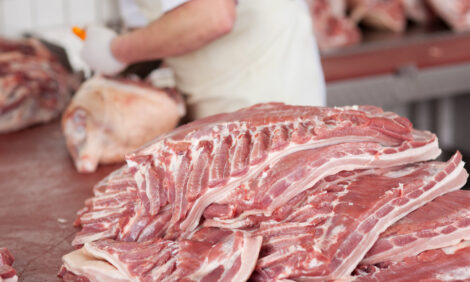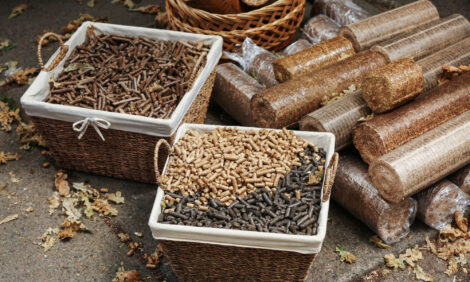



Cattle EID to Start
UK - The Northern Ireland Cattle Electronic Identification (EID) Working Group is continuing to make good progress towards the introduction of EID in the Northern Ireland beef industry. According to a Livestock and Meat Commission (LMC) bulletin, the adoption of EID and EDT (Electronic Data Transfer) across the sector has significant potential to reduce the administrative burden and risks associated with reading tags manually at marts and meat plants.It will also reduce the time taken for animal disease tests and herd identity inspections and improve the health and safety of farmers and animals from trying to read manual tags in crushes. Furthermore, farm management practices will be improved through the adoption of EID reading systems on farms, whilst giving consumers the ultimate product traceability.
In preparation for the roll out of EID across Northern Ireland, the Working Group would strongly encourage farmers, when next ordering cattle tags, to purchase EID-tag sets (1 flag + 1 EID button or EID flag) for identifying newborn calves.Tag suppliers are preparing to supply the new tag sets and all of them should be ready within the next few weeks.
EID-tag sets from DARD approved manufacturers with specific approval for EID are already available and prices should start from a price similar to that of current flag-tag sets. A list of EID approved suppliers is available on the DARD website. Farmers may continue to use existing stocks of flag-tags, but the animals tagged with these tags will, need an extra EID-tag before going to slaughter in Northern Ireland . It is expected that, by September, most Northern Ireland abattoirs will be requiring cattle presented for slaughter to have EID tags.
David Rutledge, Chairman of the EID Working Group said, “This initiative will help the industry respond to DARD’s decision to withdraw its veterinary staff from data capture activities at meat plants and livestock markets. A strong case has been put to DARD for financial support to fund Electronic Identification of the existing herd and the Working Group is expecting DARD’s decision on this by the end of June. The entire cattle industry is committed to making this initiative work, and over the coming months a sequence of steps is planned that will see abattoirs equipping lairages with EID readers, newborn calves continuing to be tagged with EID-tag sets, the existing cattle herd being identified with a third EID-button tag, and livestock markets equipping their premises with EID reading technology.The Working Group is confident that a rapid transition to EID can be delivered and as soon as the various steps are completed real efficiency benefits can begin to flow to all participants in the cattle supply chain”.
The EID Working Group has met regularly over the last eight months. It is chaired by LMC and comprised of UFU, NIAPA, NBA (NI), Northern Ireland Meat Exporters’ Association, Northern Ireland Livestock Auctioneers’ Association, and United Kingdom Electronic Identification Association.There has been a technical input to the Working Group from DARD APHIS and DARD CAFRE.
Brazilian Beef Exports Fall 28 Per Cent
Brazilian fresh/frozen beef exports decreased by 28 per cent during the first quarter of 2008 compared to the same period in 2007. Exports fell by almost 100,000 tonnes to 253,000 tonnes. Exports to the EU dropped by 54 per cent to 23,000 tonnes so far this year. They are expected to come to a complete halt during the second quarter of 2008, when the full impact of the EU ban on Brazilian beef kicks in. Beef already in transit to the EU before the ban was put in place was allowed to enter the EU until the middle of March 2008. The graph opposite illustrates the volume of Brazilian beef entering the UK in the first quarter of 2006 to 2008. Beef exports to the UK accounted for less then two per cent of UK beef consumption in 2008, compared to approximately six per cent in the first three months of 2006.
Further Reading
| - | You can view the full report by clicking here. |
TheCattleSite News Desk


